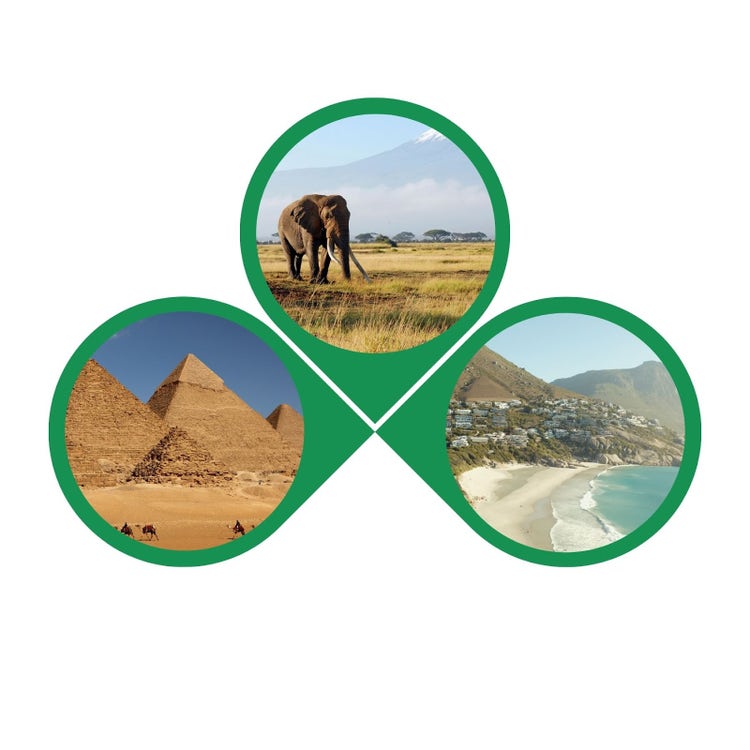AFRICA
Africa, the second-largest and second-most-populous continent on Earth, is a tapestry of diverse cultures, landscapes, and histories. Stretching over 30 million square kilometers, it is home to 54 recognized countries and a rich mosaic of ethnic groups, languages, and traditions. The continent boasts a stunning variety of ecosystems, from the vast Sahara Desert in the north to the lush rainforests of the Congo Basin, and the expansive savannas of East Africa’s Serengeti. Africa’s natural beauty is further exemplified by its majestic mountains, including the iconic Mount Kilimanjaro, and its extensive river systems, such as the Nile, the longest river in the world. The continent’s history is marked by ancient civilizations, such as Egypt’s pharaohs, the Kingdom of Kush, and the Great Zimbabwe, alongside the dynamic cultures of contemporary societies. Africa’s people, rich in cultural heritage and traditions, contribute to its vibrant arts, music, and cuisine, making it a continent of profound diversity and untapped potential, with its vast natural resources and an emerging economic landscape. Despite facing challenges, Africa continues to be a continent of resilience, innovation, and remarkable beauty.

Tour FAQ
Is Africa safe for travelers?
- Africa is a diverse continent with varying safety levels across regions. It's essential to research your destination and follow local guidelines for a safe trip.
What are some popular tourist destinations in Africa?
- Popular tourist destinations include Egypt (for its pyramids and ancient sites), South Africa (for safari and Cape Town), Morocco (for its markets and historic cities), and Kenya (for wildlife safaris).
When is the best time to visit Africa?
- The best time to visit depends on the region. Generally, Africa's dry seasons (usually winter in the Southern Hemisphere and summer in the Northern Hemisphere) are popular for safaris and outdoor activities.
What languages are spoken in Africa?
- Africa is linguistically diverse, with thousands of languages spoken. Common languages include Arabic, Swahili, French, English, and various indigenous languages.
What is the climate like in Africa?
- Africa's climate ranges from arid deserts (like the Sahara) to tropical rainforests (like the Congo Basin). It also includes savannas, Mediterranean climates, and highland regions.
What should I pack for a trip to Africa?
- Packing essentials include lightweight clothing, comfortable walking shoes, sunscreen, insect repellent, a hat, a reusable water bottle, and any necessary medications.
What are some famous wildlife experiences in Africa?
- Africa is renowned for its wildlife safaris. Key experiences include seeing the Big Five (lion, elephant, buffalo, leopard, rhinoceros), witnessing the Great Migration in East Africa, and visiting gorillas in Uganda or Rwanda.
Is English widely spoken in Africa?
- English is one of the official languages in many African countries, particularly in former British colonies. However, local languages are more commonly spoken in rural areas.
What cultural experiences can I expect in Africa?
- Cultural experiences range from visiting ancient archaeological sites (like Egypt's temples) to exploring vibrant markets (like Marrakech's souks) and attending traditional music and dance performances.
What are some UNESCO World Heritage Sites in Africa?
- UNESCO sites include the Egyptian pyramids and ancient temples, South Africa's Robben Island, Ethiopia's Lalibela Rock-Hewn Churches, and Tanzania's Serengeti National Park.